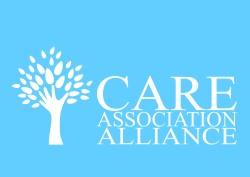Energy Bill Relief Scheme Replacement – ‘Energy Bills Discount Scheme’
The government has announced that the Energy Bills Relief Scheme will be replaced by the ‘Energy Bills Discount Scheme’ from 1 April 2023. This will last for 12 months and is seen as a transitional scheme. The amount of support seems to have been significantly reduced. Rather than being a cap on the wholesale unit price, it is now a maximum discount per wholesale unit above a certain threshold if our understanding is correct. The total money set aside for the scheme also appears to have been capped at £5.5bn – it’s unclear what happens if that amount is breached.
The new scheme will be available to everyone on a non-domestic contract including:
- businesses
- voluntary sector organisations, such as charities
- public sector organisations
who are:
- on existing fixed price contracts that were agreed on or after 1 December 2021
- signing new fixed price contracts
- on deemed/out of contract or shared variable tariffs
- on flexible purchase or similar contracts
- on variable ‘Day Ahead Index’ (DAI) tariffs (Northern Ireland scheme only)
Eligible non-domestic consumers will now receive a per-unit discount to their energy bills during the 12-month period from April 2023 to March 2024, subject to a maximum discount. The relative discount will be applied if wholesale prices are above a certain price threshold. For most non-domestic energy users in Great Britain and Northern Ireland these maximum discounts have been set at:
- electricity – £19.61 per megawatt hour (MWh) with a price threshold of £302 per MWh.
- gas – £6.97 per MWh with a price threshold of £107 per MWh
The discount is calculated as the difference between the wholesale price associated with an energy contract and the price threshold. The discount is phased in when the contract’s wholesale price exceeds the floor price, until the total discount per MWh reaches the maximum discount for that fuel.
We would be interested to know what impact this is likely to have on you as this scheme operates differently from the previous one, making it hard to make a direct comparison about the level of support being offered.
There is a second category for energy intensive industries. These are referred to as Energy and Trade Intensive Industries or ETIIs. Adult social care does not fall into this category.

